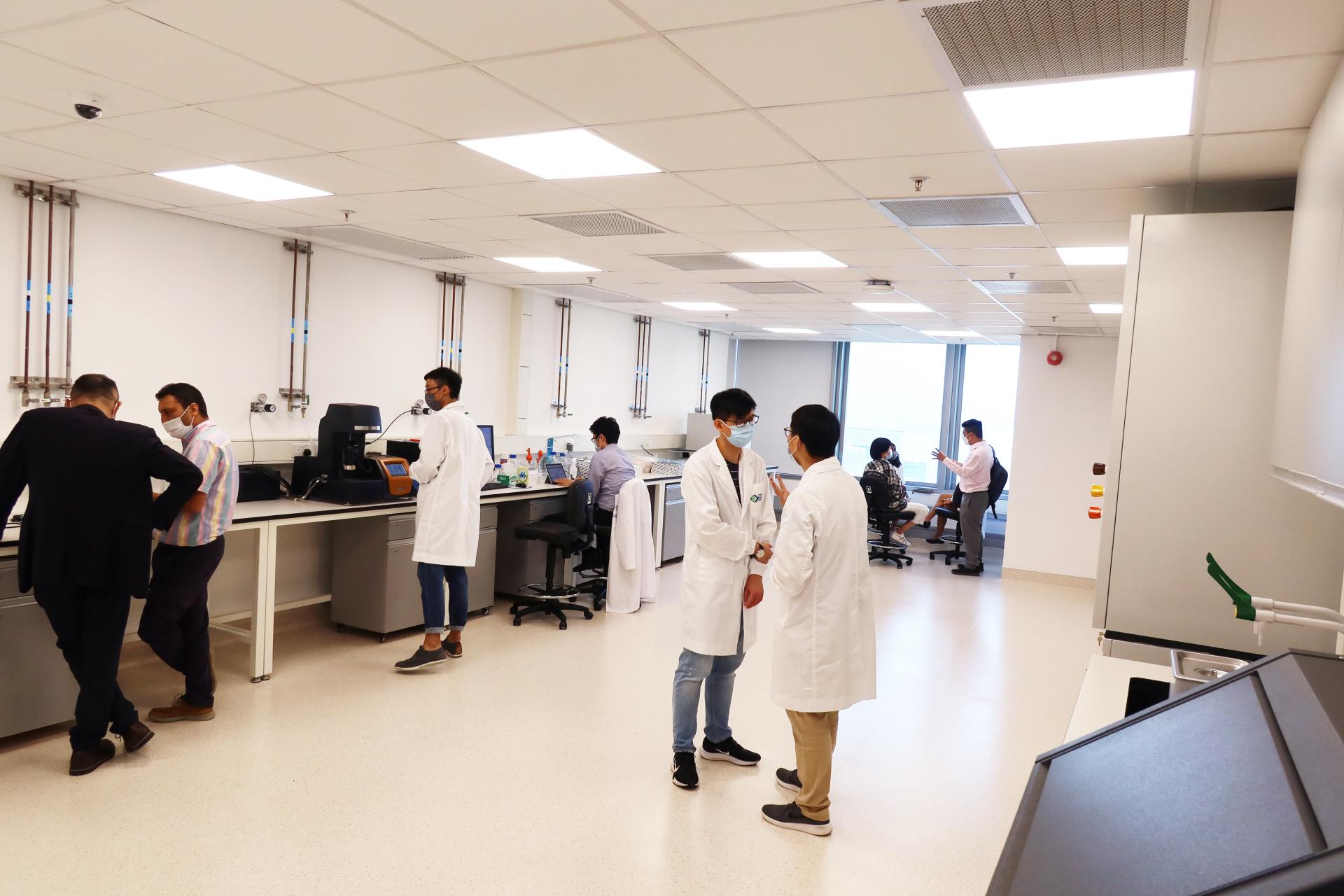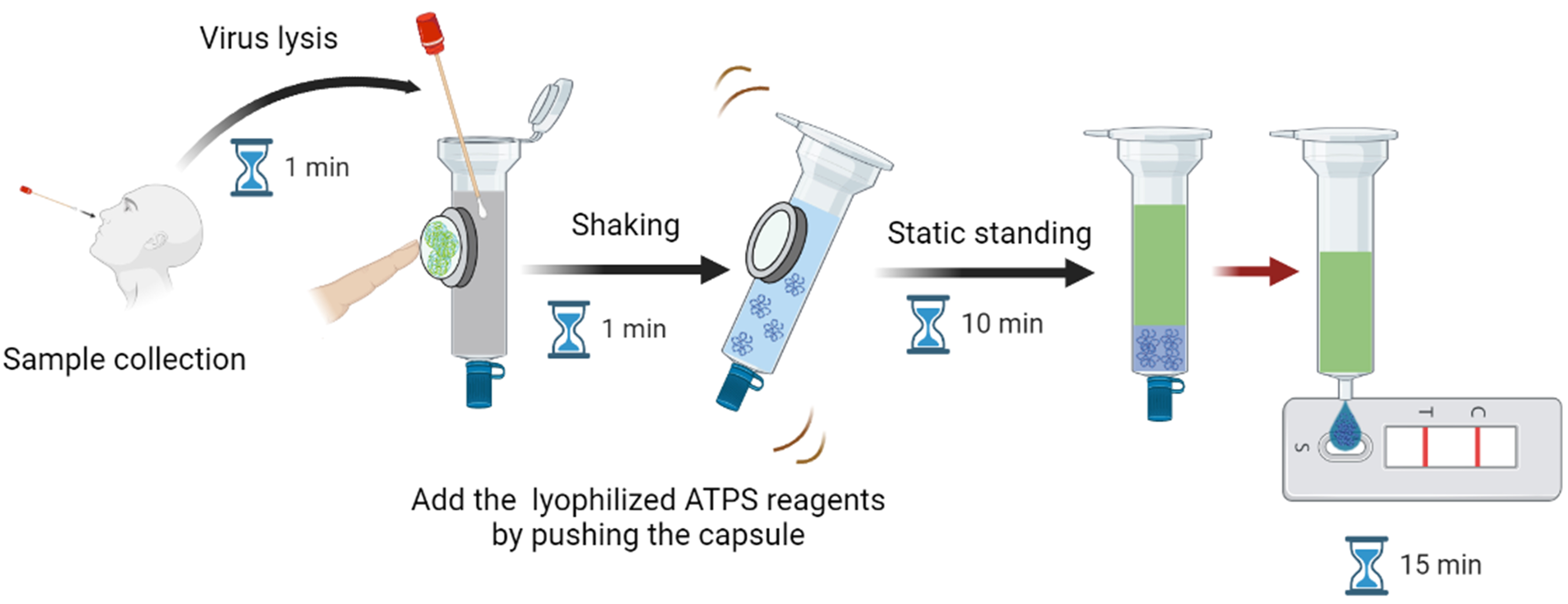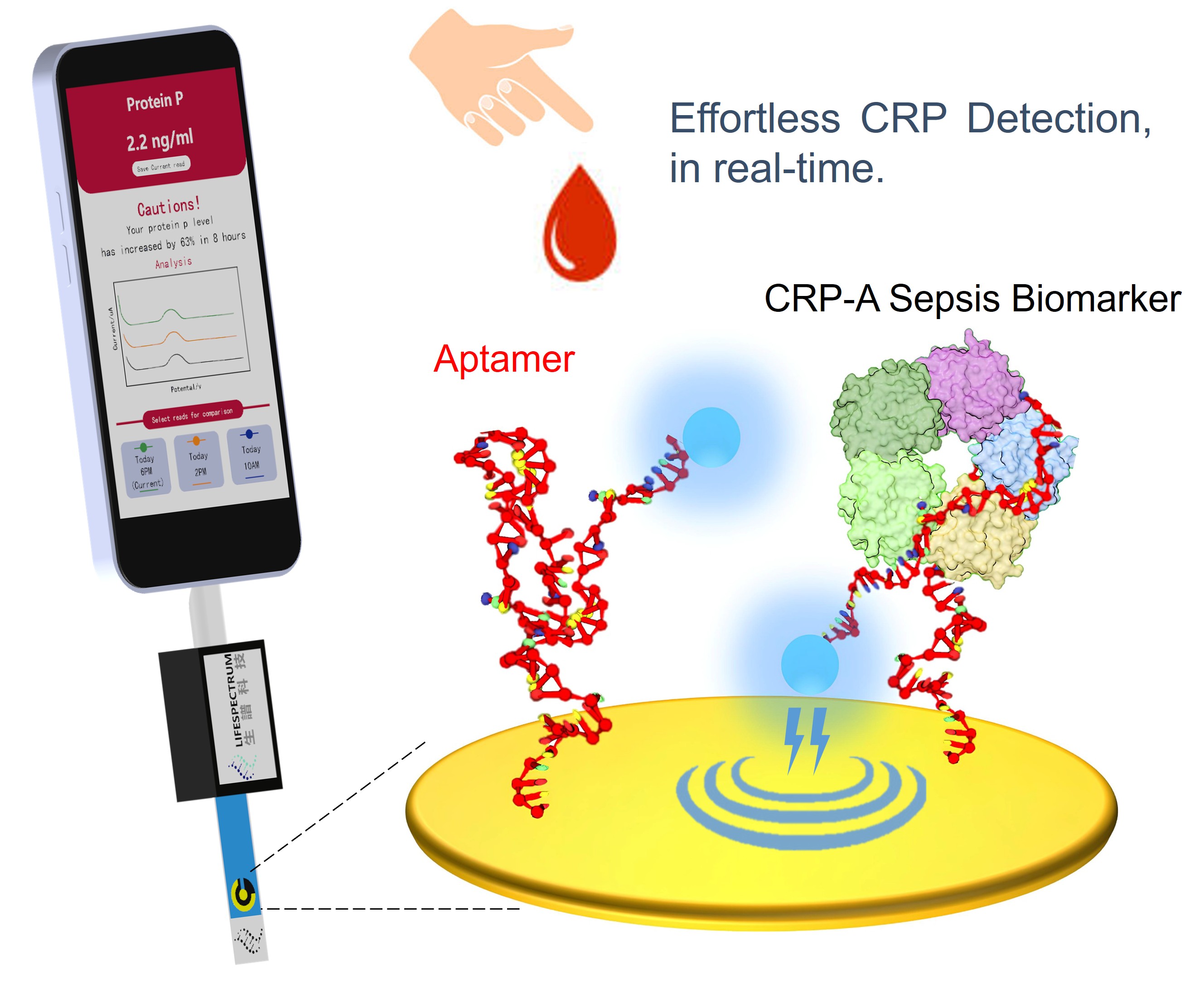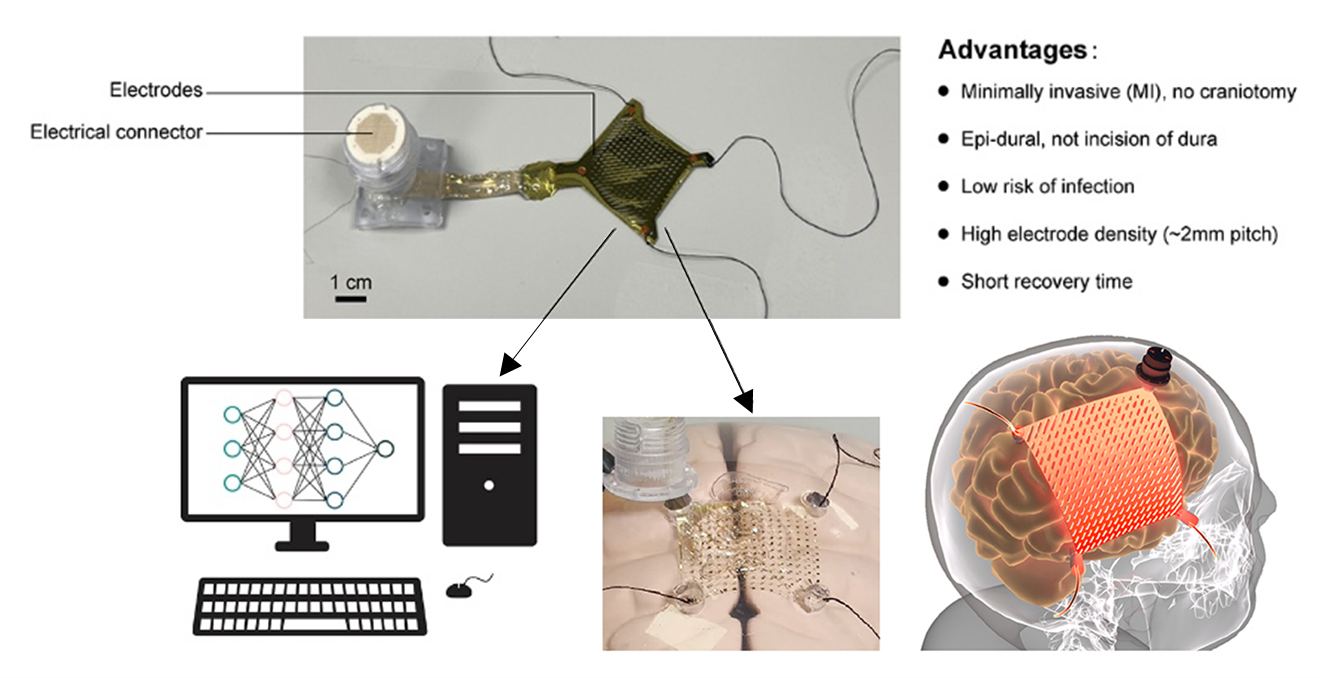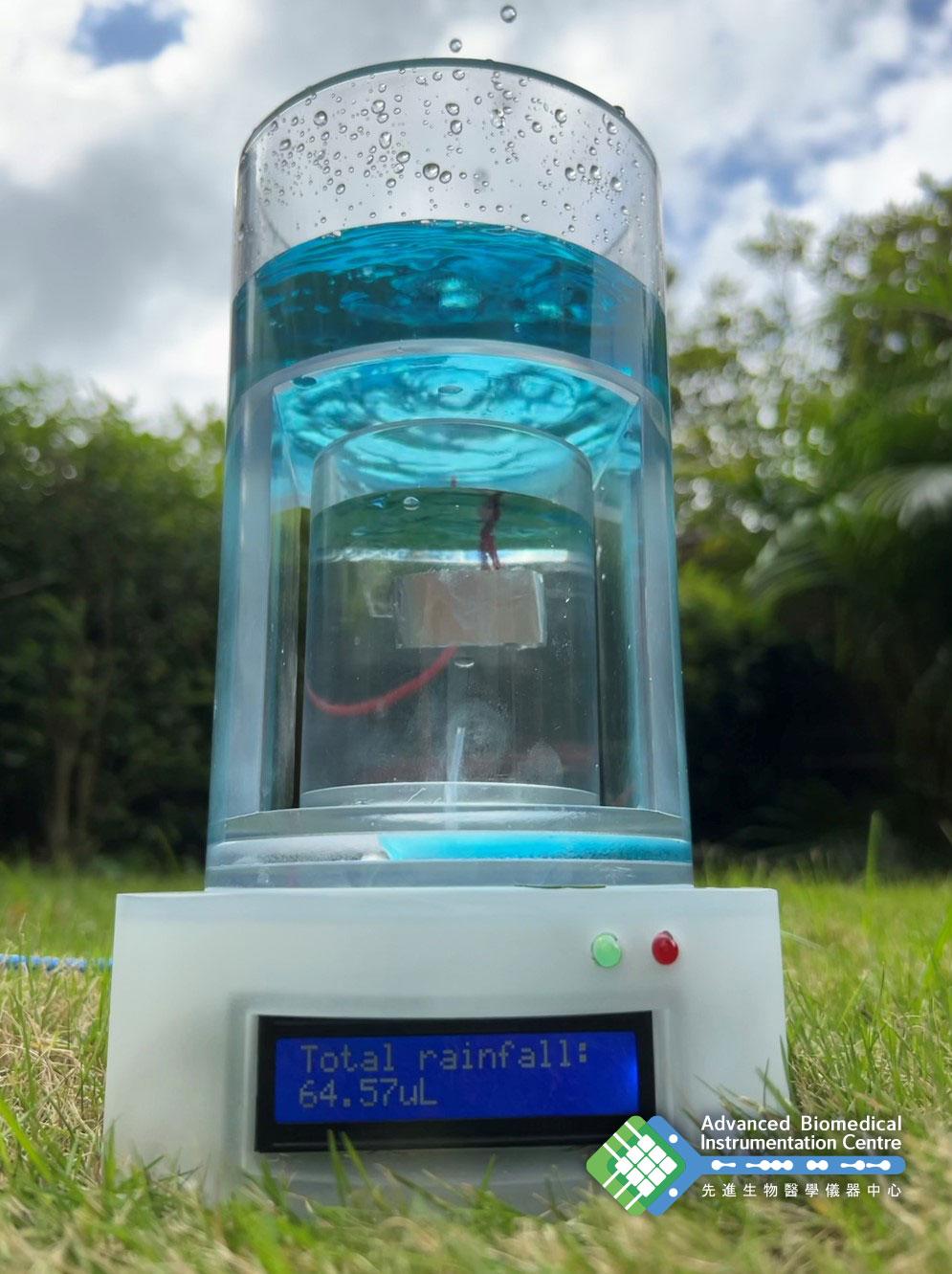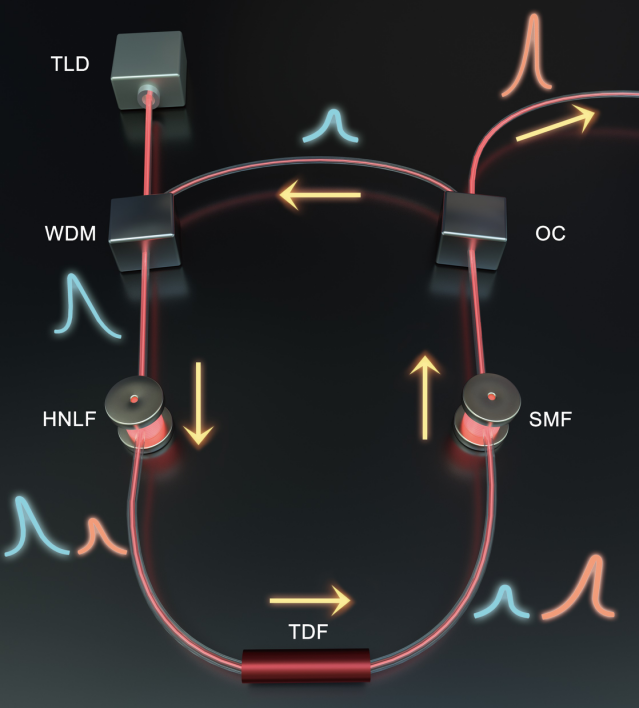
Ultrasensitive Rapid Antigen Tests

This invention develops an ultrasensitive rapid antigen detection kit for detecting N protein from SARS-CoV-2 virus in a sample and methods for detecting N protein. The kit includes a sample collector, a collection and enrichment tube and a rapid antigen detection component with a test strip. The enrichment is realized by concentrating target analyte into one of two ATPS phases.
The detection efficiency of RT-PCR test is limited by several inherent drawbacks including complexity, high cost, and long process time. Meanwhile, the reliability of the LFA-RAT is limited when detecting samples with ultra-low concentrations, which cannot distinguish the viral loads with Ct value larger than 30.
- High sensitivity: The present invention uses a non-equilibrium enzyme-loaded aqueous two-phase system (ATPS) via phase separation-assisted preconcentration (PSAP) technology to enrich the sample concentration from an undetectable range to a detectable one, thus improving the sensitivity and limit of detection (LOD) of lateral flow assay-based rapid antigen test (LFA-RAT) and making its sensitivity comparable with the PCR tests.
- Low detection of limit: This invention systematically uses the phase separation assisted preconcentration (PSAP) technology to adjust the two-phase volume ratio and property parameters of the ATPS. This can greatly improve the LOD of viral nucleocapsid proteins by up to 10-fold for SARS-CoV-2 and 5-fold for influenza B viruses.
- Simple and rapid: The present invention provides a phase separation-assisted preconcentration method for ultrasensitive rapid antigen tests, offering accurate tests that are simple, low-cost, and rapid, broadening the scope and impact of RATs in the point-of-care fields.
- The present invention provides a novel method for detecting N protein from SARS-CoV-2 virus in a sample and a novel design to integrate and automate sample collection and analyte enrichment process. The device can be directly used in commercial LFA-RAT kits, without additional modification to the existing test strips.
- 49th International Exhibition of Investions Geneva Silver Medal
- PRIX EIFFEL 2023 Platinum Medal
- iCan FINALS of the 8h International Invention Innovation Competition in Canada (iCAN 2023) Gold Medal
- Third Prize of the 9th Hong Kong University Student Innovation and Entrepreneurship Competition, HKNGCA Innovation & Entrepreneurship Centre, 2023
- Directly apply to commercial LFA products
- Point-of-care diagnostic tools
Patent
- Patent Pending
Advanced Biomedical Instrumentation Centre
Biomedical instrumentation plays a critical and increasing role, albeit invisible to most people, in the healthcare industry by enabling more accurate diagnoses, effective treatments, and earlier intervention and prevention capabilities. Advancing the development of cutting-edge medical devices, actuators and sensors requires collaboration among talented scientists, engineers and clinicians, as well as an environment that facilitates the commercialisation of research results into real-world applications that are accessible to a broader population.
The mission of the Advanced Biomedical Instrumentation Centre is to accelerate progress in translating advanced biomedical instrumentation from research and development into real-world healthcare solutions that benefit people in Hong Kong and around the world. The Centre aims to foster collaboration among top-notch engineers, scientists and clinicians in the US and Hong Kong to develop next-generation microfluidics and low-cost instrumentation technologies. It also takes advantage of Hong Kong’ s vibrant start-up community to commercialise the research work tailored for Asian patients.
